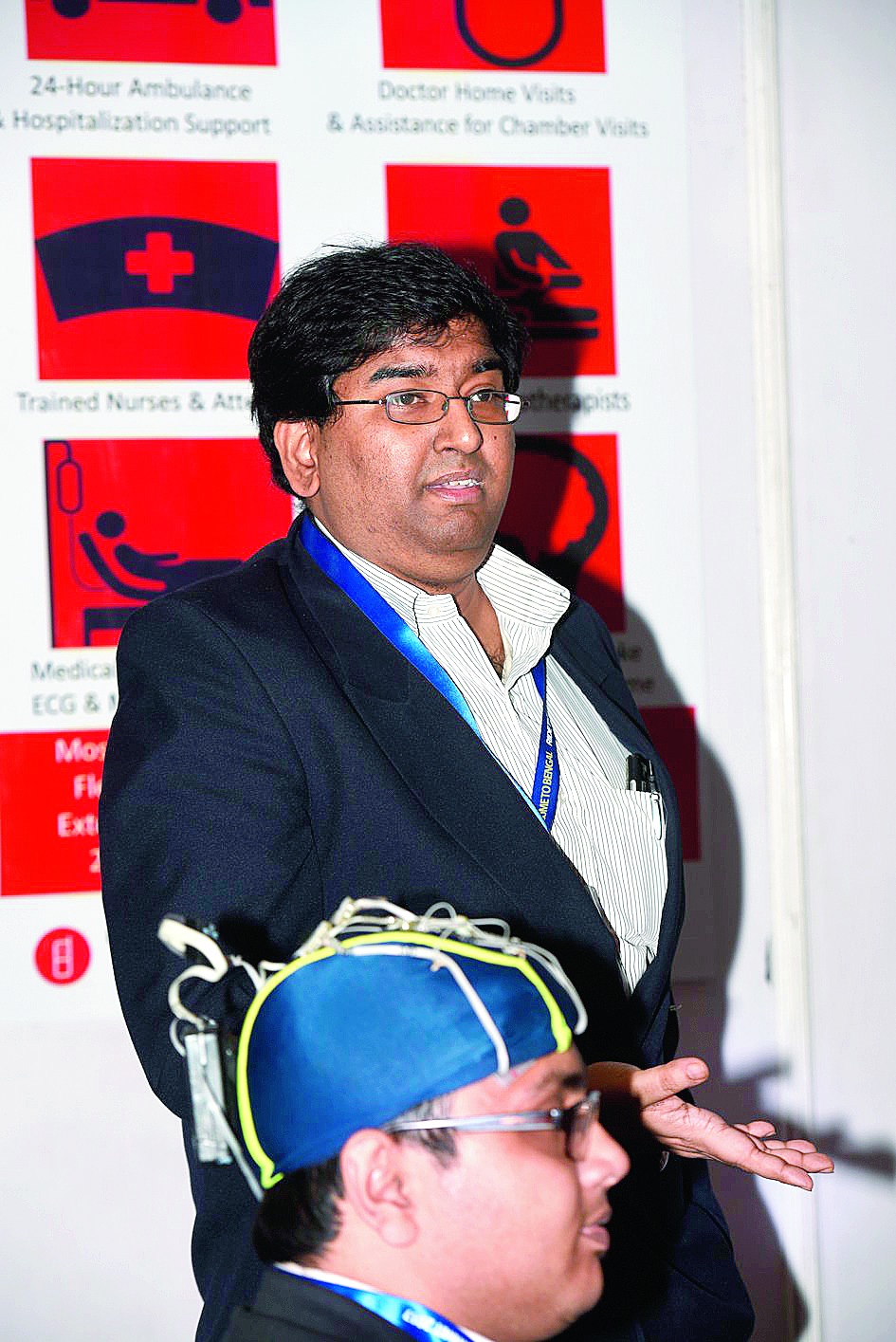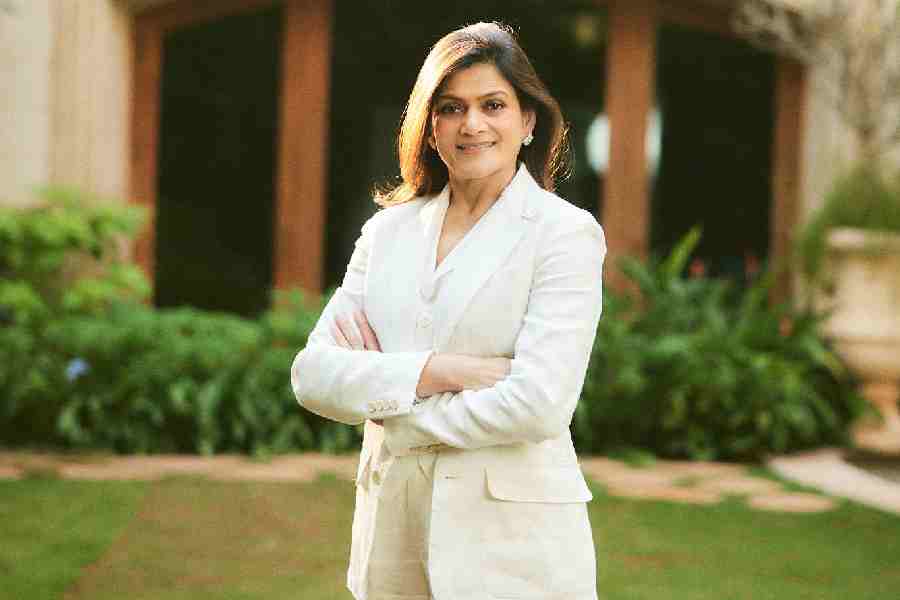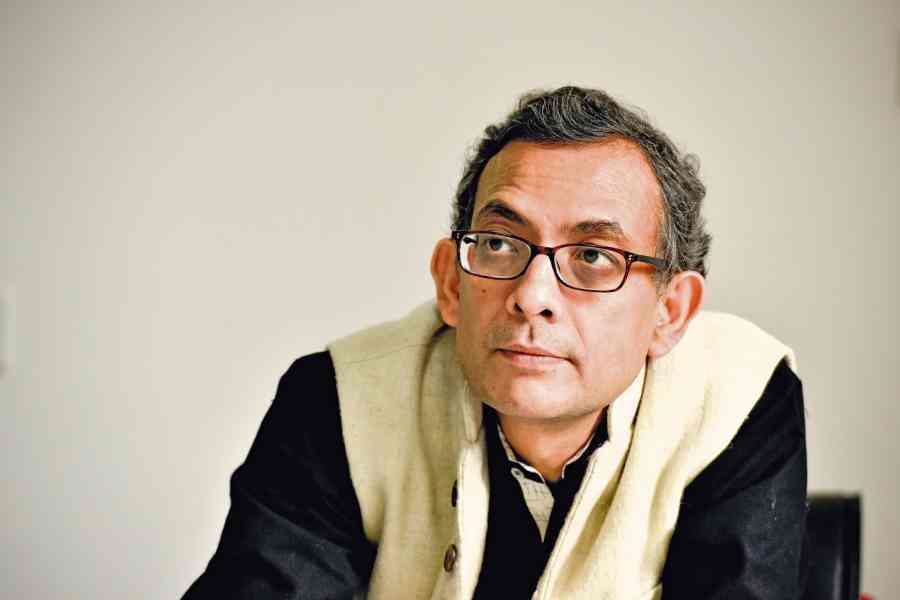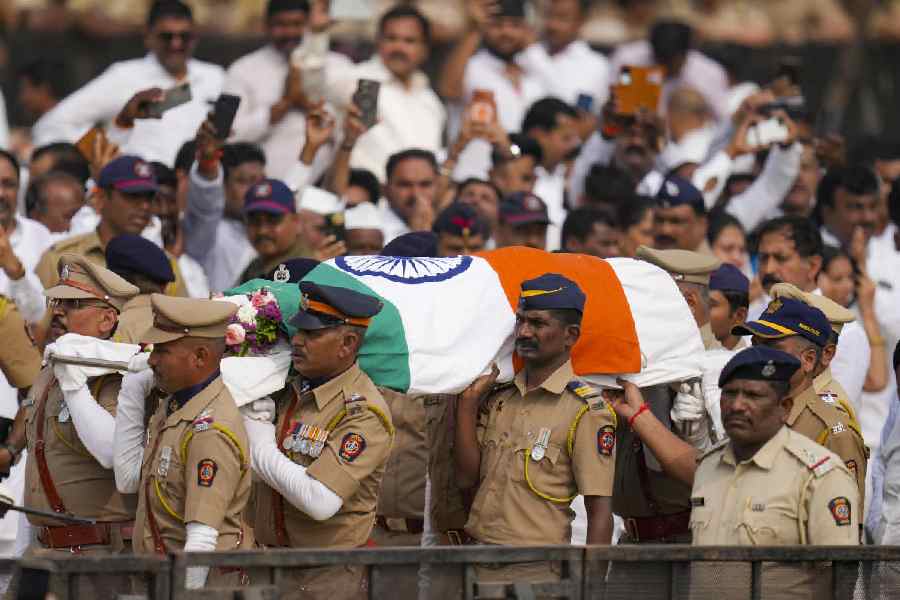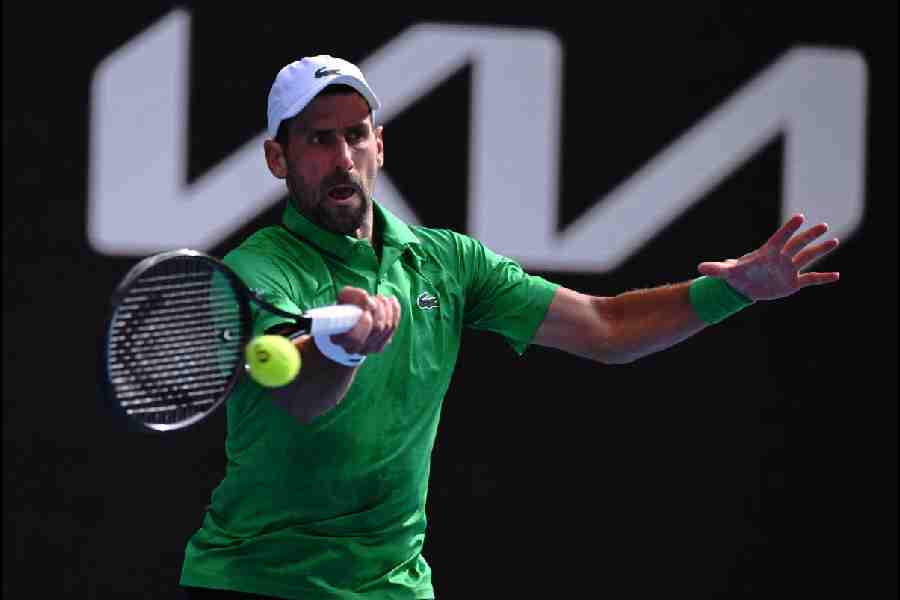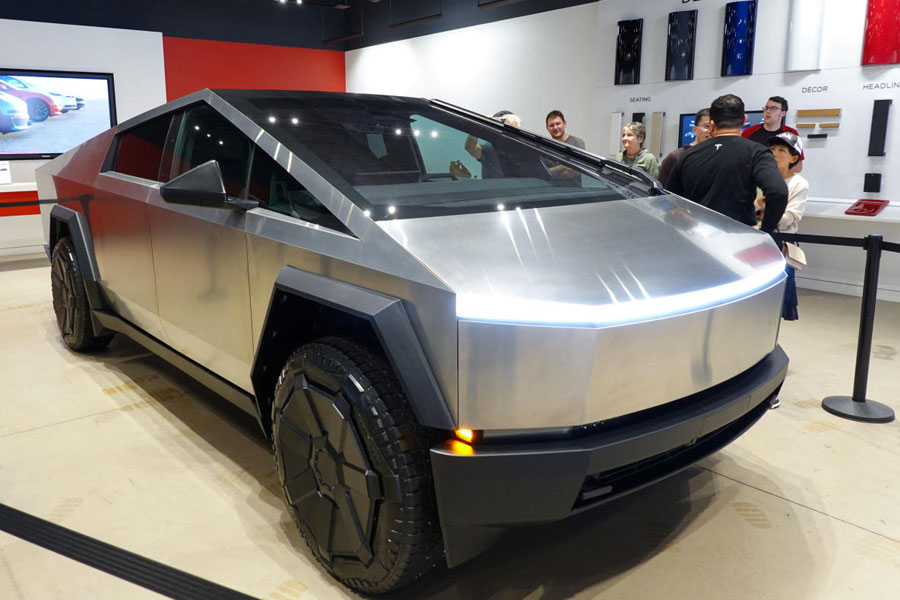
Feb 9: It looks like a swimming cap and can be worn like one. But a mini box attached to it with in-built sensors can pick up signs of brain damage.
A city-based start-up has developed a portable device that promises to detect brain ailments that cannot be detected externally. The device, named Cerebros, would send the data picked up from the wearer's brain through a tablet to a cloud from where it would reach a monitoring centre for diagnosis and treatment.
"Cerebros can detect internal bleeding, stroke, traumatic brain injury, epidemic seizure and hypoxic ischaemic brain injury (in which newborns die of lack of oxygen supply to the brain, which may remain undetected)," said Abhijit Das, co-founder of Arogya MedTech.
The innovation was runner-up at the Tata Social Enterprise Challenge, organised by IIM Calcutta Innovation Park, the business incubation wing of IIMC, last month.
Das's 2012 paper on neurological disability in India contained the germ of the idea behind Cerebros. He was then in New Jersey as a fellow of Kessler Foundation. On his return to India, Das started working with Anirban Dutta, teacher in the department of bio-medical engineering at the State University of New York. They were joined by Rajib Sengupta, a computer scientist turned social entrepreneur.
"Brain injury causes most road deaths," said Sengupta, who co-founded Arogya MedTech with Das and is its CEO. "Physicians miss early stroke symptoms in many cases. Cerebros can change that."
Cerebros has undergone limited clinical study at the Institute of Neurosciences, Calcutta, with its prototype. Feasibility studies have been conducted with academic partners in the US, Germany and France, the developers of the device said. It needs rigorous clinical trials and approval from multiple authorities. A patent has been applied for.
The makers claim Cerebros can be used by people with minimal technical knowledge - ambulance drivers, cops and primary health workers.
The device also allows continuous brain monitoring, useful on the way to a medical facility. "Our software can cancel out the jerks of a road journey," Sengupta said.
Doctors find the concept useful. "We have no tool to check if a patient needs neurological attention. In 90 per cent cases of cerebral attack, there is delay in diagnosis. This device may be useful if it gets the approvals," said Jayanta Roy, director of neurology, AMRI, Mukundapur, who saw a demonstration of Cerebros, which may be market-ready next year.
The hardware will be priced at Rs 50,000 but will be offered to potential users on a pay-per-use rate initially.

